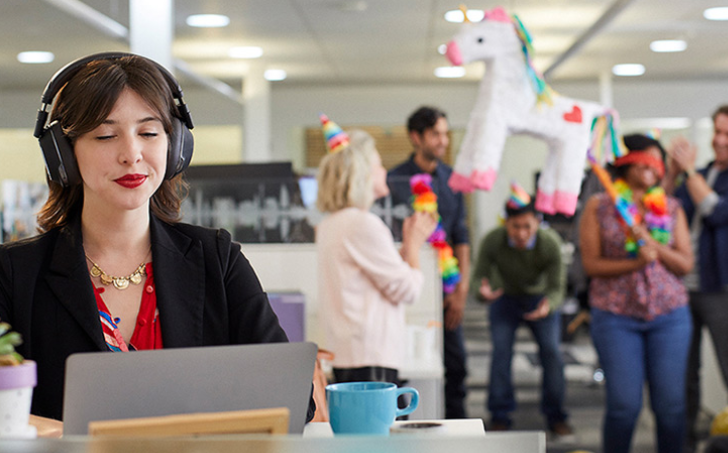A global study commissioned by Poly (formerly Plantronics and Polycom), a global communications company that powers meaningful human connection and collaboration, and done by HR advisory and research firm, Future Workplace, revealed that 99% of employees are distracted some of the time in the office.
About 5,151 workers in 10 countries were surveyed to discover both the realities and causes of workplace distraction, and what companies and employees can do to curb it. It also identified the current trends in office landscape today, and how technology is integral in keeping the environment conducive for work.
Open offices appeal to young workers, but can be distracting
The study revealed that more modern workspaces attract Gen Z and Millennials. 55% of Gen Z and 56% of Millennials prefer open office spaces as compared to the older generations who still predominantly choose traditional office setup, as open offices appeal to the younger generation due to the vibe and aesthetics.
However, today’s open offices also come with functional problems that frustrate workers. Most employees feel that noise disrupts their productivity. Most common distractions that they encounter are loud talking co-workers over the phone, office celebrations, co-workers talking nearby, table and video games, phone rings and alerts, and bringing pets in the office.
Workplace distractions also come with a cost, with nearly 1 in 3 employees losing one or more hours of productivity, while 48% of participants admitted to lacking in focus to get things done.
Despite the challenges experienced, the employees surveyed still regarded open office spaces as preferable. To combat these challenges and remain productive, employers and employees have found several strategies, including the opportunity to tap on collaboration solutions, in order to bridge the gap and stay productive.
34% said that they look for a quieter spot at the office, while some utilize technologies such as wearing music headphones (27%) or noise cancelling headphones (19%) to stay productive despite being in a shared space.
Organizations also established quiet spaces or zones to reduce office distractions. Revamping the office layout and setting guidelines on appropriate noise levels were done to improve employees’ peace of mind at work.
Noise reduction and other tech solutions improve productivity
The survey also found that 53% of employees went to their direct manager, and that 1 in 7 went to IT to resolve issues with office distractions. This is surprising given that one of the most effective ways to reduce noise in the workplace is by reaching out to the IT department, who usually have access to technologies and tools that could significantly reduce noise-based distractions. This can include noise-cancelling headphones, or huddle rooms and phone booths equipped with audio-video and content sharing platforms.
Overall, the study demonstrated that noise reduction is indeed vital in a productive workplace and that investing in technology solutions such as noise-canceling technology is crucial.
To address problems and enable maximum productivity, Poly recently introduced next-generation Savi 8200 Office Series, the first DECT headsets with active noise cancelling in the Philippines. “More employees in the Philippines are now adopting work-from-anywhere arrangements, thanks to the recently-signed Telecommuting Act. With this, employees need the right tools and technologies to help them stay productive, even when working remotely” said Samir Sayed, managing director, ASEAN and Korea, Poly. “Poly’s innovations are designed to help everyone perform at their best, whatever their workplace environment. The new Savi 8200 Office Series has a unique close conversation limiting feature and easy call merging with support for desk phones, mobile devices, and PCs to overcome the distractions, make communications clearer, and improve overall employee satisfaction. With technologies like these, we hope that distraction in the office will be a thing of the past for Philippines businesses,” he added.
